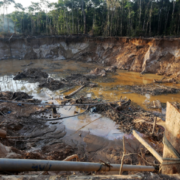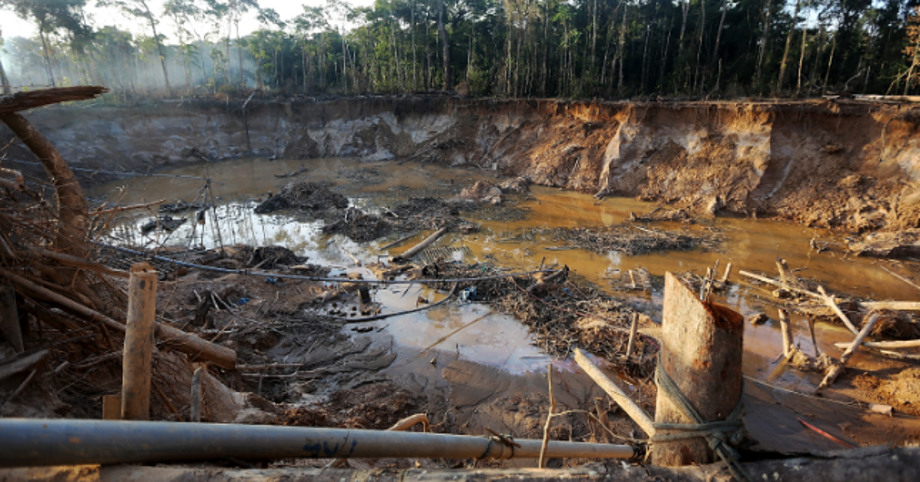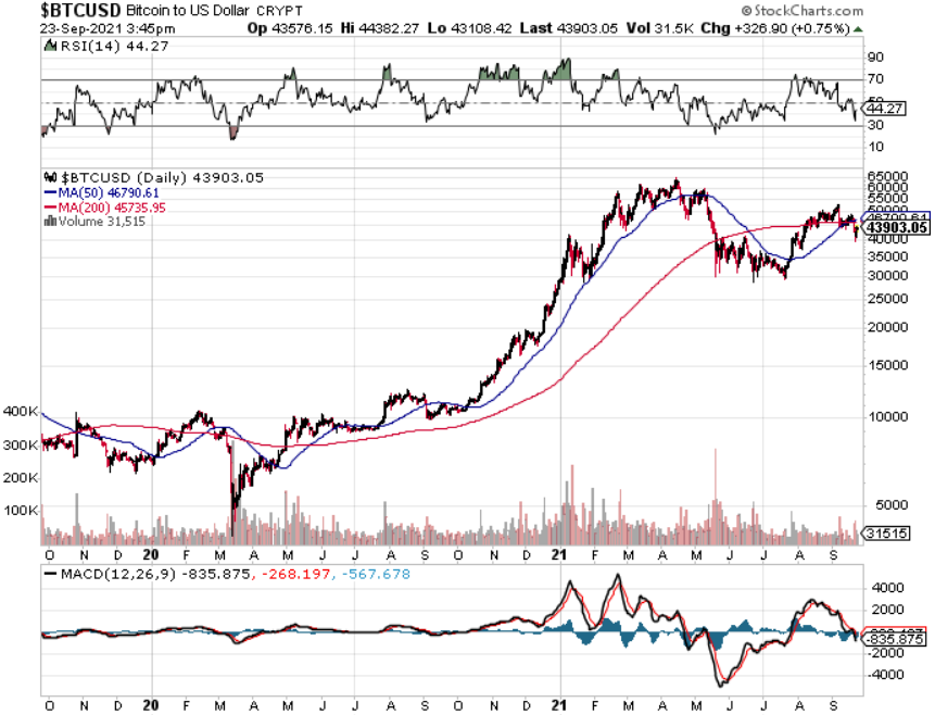Different Ways to Play Crypto
One might postulate that the price of bitcoin and Chinese housing has no relevant correlation with each other.
Think again!
Granted, Chinese citizens aren’t denominating their mortgages in bitcoin to snap their ritzy Shanghai townhouses overlooking the Bund.
I don’t mean that.
But Bitcoin is an asset just like stocks, bonds, and commodities and is exposed to one-off events that shake out the financial system.
What’s brewing in the Middle Kingdom?
Chinese biggest property builder Evergrande teeters on the brink of financial devastation.
Add it up, Chinese bank deposits are $35 Trillion, more than 2x the US.
Would any Chinese financial crisis lead to an epic flight to fiat alternatives?
Does nobody recognize that this is a planned liquidity drain of the property market in China by the CCP?
All escape "exits" have already been shut. You can't even buy paper gold in China either - forget Bitcoin!
So I don’t believe that the potential disorderly selling of Chinese flats or the bust of a major property developer would end up boosting the price of Bitcoin because the Chinese government has made it abundantly clear that bitcoin is a red line for its citizens.
If there is a 20% dip in Chinese property prices — Chinese would believe that’s a once-in-a-century buy the dip type of event.
That doesn’t mean that some won’t try to sell on the down low and get their money out of China through hell or high water.
Some certainly will — China made it clear they didn’t want their citizens investing in overseas assets — I know of the odd millionaire spinning out a random credit card to put a down payment on a house in Vancouver.
What this does scream is policy error big time — an overtightening that could result in a hard landing that is ruinous for global growth.
That would be the worst-case scenario and I would put that at 10%.
Why is this company systemically important?
Evergrande was once China’s darling real estate developer. Now, it is gagging on debt.
It was founded in 1997 by Xu Jiayin. It has completed around 1,300 commercials, residential and infrastructure projects and supposedly employs upwards of 200,000 people.
The company’s success came because it was aligned perfectly for the parabolic boom in real estate that has been driven by the last two decades of staggering Chinese growth, growth for a country that is unparalleled in all of modern human history.
The tragedy in all this is that 1.5 million Chinese have put deposits down on homes that haven’t been built and this is more often than not their entire life savings.
Most likely, it is them who will hold the bag and lose their deposit.
Better them than me.
For a soft landing to happen, the Chinese government must pull out all the bells and whistles.
Even though I categorize this as a quasi-gray swan, opposed to a solid black swan, it is highly likely that it won’t spill over into the broader market, and if we do get a large bitcoin dip, bitcoin buyers finally are gifted a cheaper price to enter bitcoin.
These opportunities are few and far between recently, at least in 2021, and I can guarantee that MicroStrategy CEO Michael Saylor is already ginning up his next bitcoin purchase usually done with his own company's corporate paper.
Limiting the fallout will be easily done if the Chinese government flood the right channels with liquidity, plugging the holes before they become unpluggable kinda like our own debt ceiling mess.
The larger issue is to ponder — is this the tip of the iceberg?
The silence and a lack of major actions from policymakers is making everyone nervous, but most likely they are sorting it out behind the scenes.
The response so far has been largely limited to the People’s Bank of China, which injected a net 90 billion yuan into the banking system. It added another 100 billion yuan on Saturday.
Evergrande has been mired in $300 billion worth of liabilities, more than any other property developer in the world. It’s a beast in China’s high-yield dollar bond market, accounting for about 16% of outstanding notes.
A lackluster response to an already expensive market could be costly, with real estate accounting for 40% of household assets in China. Data last week showed home sales by value slumped 20% in August from a year earlier, the biggest drop since the onset of the coronavirus early last year.
Isolating Evergrande is almost a point of emphasis for the Chinese Communist Party and the mission is to harangue them as a scapegoat for sky-high property prices.
They are the fall guy.
This is more of a political show than anything else — a show of power — letting the world know that this economic pain is nothing to even bat an eyelid about.
Bitcoin, perceived as a riskier asset along the risk curve, is not immune from a sell-off and a flight to safety has taken prices down around 10%.
I have full faith in the Chinese government and its authority to nip this in the bud, and around the $40,000 level, the price of Bitcoin should offer resistance.
If Bitcoin holds $40,000 and a resolution to this is announced, expect a 10% surge in Bitcoin prices.
This should not be treated as anything more than a standard 5% equity drop that is equivalent to a 10% crypto drop in prices.
Book some of those gaudy profits you made in the first half of the year to drop your cost basis while deploying capital at lower levels.
THE AFTERMATH OF GOLD MINING IS DEVASTATING




